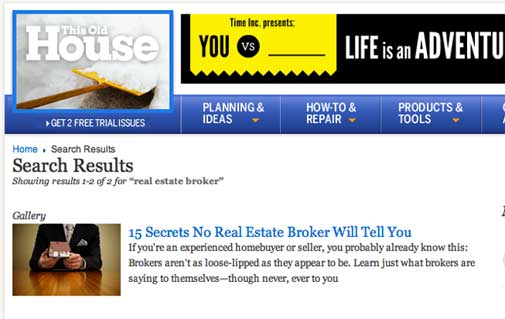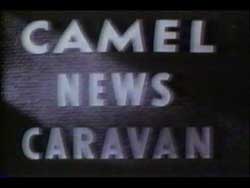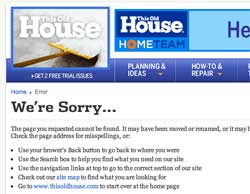
The founder and editor of this site, under a different context, recently told me I write about old people a lot.
I stipulate that fact, with no reservations.
So it should not surprise him, or anyone else who has read my earlier interpretations of TV's Dead Sea Scrolls, when I start here by reflecting on the long-ago days when sponsors controlled what television viewers saw -- and didn't see...

Sponsors owned the shows in the early days. And if that sponsor was a cigarette maker who wanted the show's characters to light up during the show -- or if the sponsor was an automaker who dictated the type of car the lead character drove -- that's what happened. "Gladly," without question.
Sponsors had, in most cases, total creative control. The sponsor's enforcer, so to speak, could walk onto the set, or into the writers' room, and rip the life out of a script the way a ravenous polar bear tears into an unlucky seal. Resulting, in some cases, in similar messes -- which may explain the relative rarity of truly classic series.
Then came the reformation, and networks started tending the crops that grew on their acreage. Sponsors bought time on the shows; they no longer owned them. This change has been heralded many times as a point at which creativity took a giant leap out of commercial bondage.
But when a depressed economy stretches too long, it can play havoc with ideals.
David Bianculli recently wrote about blatant product placement in commercial-network series, and surprisingly few readers posted responses saying a Subway here and a Ford Focus there shifted their viewing composure from equilibrium to agitation. So I honestly expect a much smaller blip on the seismograph over the fact that commercialism may be snaking into public television, too.
(Collective gasp . . . or not.)
As Rod Serling (another antiquity reference) used to say: Submitted, for your consideration...
On Feb. 1 the Time Inc. magazine This Old House posted a story on its website called "15 Secrets No Real Estate Broker Will Tell You." Not every one of those secrets made real estate brokers appear to be on the way to canonization.

I would quote some here, but I can't, since the article was removed later that day. And that's the odd part. Just why did it disappear?
Time Inc. owns the magazine, and the series of the same name that runs on PBS stations across the country. Most of the programs that public-TV stations run are underwritten, not owned, by commercial entities; often, they are produced under the aegis of individual public-TV stations.
The hybrid This Old House program is owned by the for-profit Time Inc. but still underwritten by separate for-profit corporations: Home Depot; GMC; Lumber Liquidators; Stanley; State Farm Insurance; and the National Association of Realtors.
Was the story removed from the website because it bothered that last-named underwriter? Stephanie Singer, speaking for the Realtors group, said it wasn't offensive, it was a four-month-old story that no doubt had been reposted by mistake, and that probably was the reason it went away.

But Karen Greco, speaking for Time Inc., said the disappearance happened because the story was "inadvertently put up prematurely" as a mistake. The story, she said, "is probably slated for later this year." Singer, Greco said, probably mistook it for one called "Brokers Tell All" that was published in January 2009 -- a bit longer than the four months Ms. Singer recollected. (In a subsequent conversation, Ms. Singer said the story she remembered wasn't written for the This Old House magazine.) A call to the magazine's editorial offices for a clarification was not returned.
Of the people who were able to be reached for this story, no one seemed upset by events that could be interpreted as a close brush with PBS funding standards and practices, which state: "To allow program judgments to be controlled by program funders would be to breach the public's trust. Therefore, PBS will not accept a program if the program funder has asserted, or has the right to assert, editorial control over a program." (For a list of the guidelines, click HERE.)
Does all of this -- whatever it might mean -- cast ugly shadows on television's best home-improvement series? No way. The five principals of the series appear to be sticking to the original mandates that make it standout television -- as does the series itself.
What I worry about is this:
If a sponsor can establish a beachhead on a rock like This Old House, what kind of resistance can be put up by a public-TV series that is still trying to establish roots?
With Tea Party disdain for most things cultural a fashionable wave, private funding is more important than ever. A new and worthwhile public-TV series in search of production assistance night be forced to either give in to the bankrollers or relish the integrity of cancellation.
Out of work, a show's producer and staff might have to sell their homes to survive. If so, maybe the magazine, by that time, will have published "15 Secrets No Real Estate Broker Will Tell You."
Could be a big help. Tax deductible?